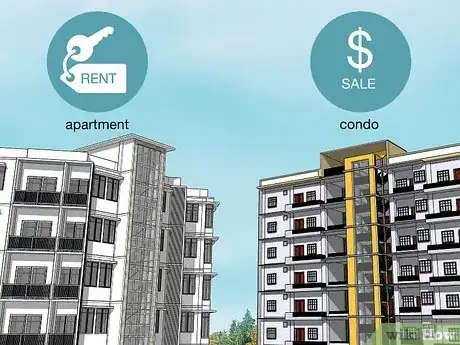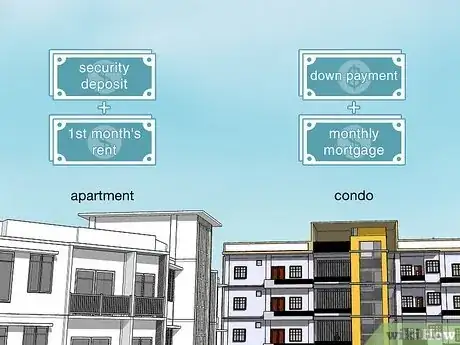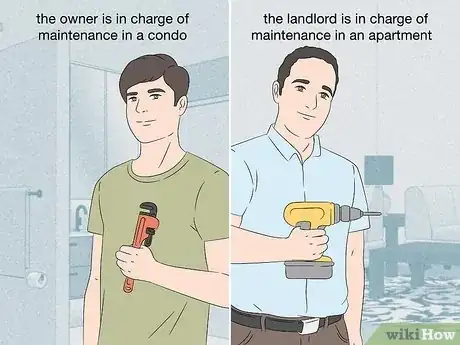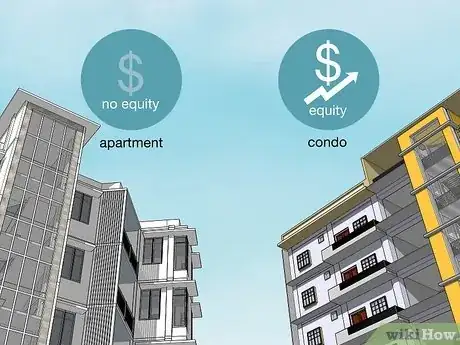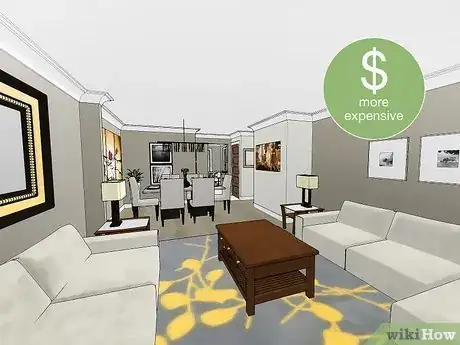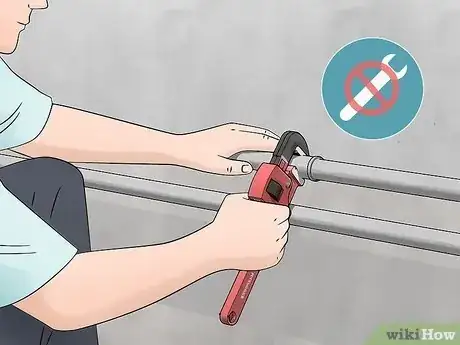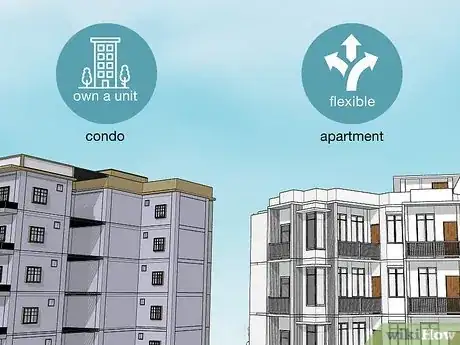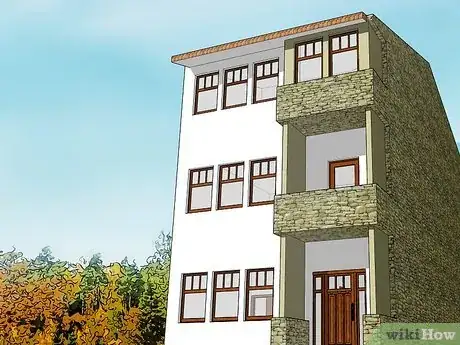This article was co-authored by wikiHow staff writer, Devin McSween. Devin McSween is a wikiHow Staff Writer. With a background in psychology, she has presented her research in social psychology at a variety of conferences and has contributed to several manuscripts for publication. At wikiHow, Devin combines her love of writing and research with the goal of bringing accessible information to wikiHow readers that will help them learn and grow. She earned her BS in Psychology from the College of Charleston.
There are 8 references cited in this article, which can be found at the bottom of the page.
Learn more...
With your lease up in a few months, you’re probably already on the hunt for your next home. You’ve been looking at both apartments and condos, but after inspecting each place, you’re not really sure how these properties are all that different. If you’re in the market for a new home and aren’t sure about getting an apartment or condo, you’ve come to the right place! In this article, we’ll tell you about all the differences between condos and apartments. To help you make the best decision for you, we’ll also go over their pros and cons. Read on to find your next place!
Things You Should Know
- You typically buy and own a condo, while you rent an apartment. Owning a condo builds equity, while renting an apartment does not.
- In an apartment, the management company takes care of repairs. In a condo, you’re responsible for maintenance.
- Condos typically have nicer amenities and customizable features. They usually have higher-up front costs and require an additional monthly HOA fee.
- Apartments offer more flexibility to move and are easier to maintain. They don’t build equity though and might not be as upgraded as condos.
Steps
References
- ↑ https://www.apartmentguide.com/blog/apartment-vs-condo/
- ↑ https://www.apartmentguide.com/blog/apartment-vs-condo/
- ↑ https://www.hellolanding.com/blog/condo-vs-apartment-what-are-the-differences/
- ↑ https://www.hellolanding.com/blog/condo-vs-apartment-what-are-the-differences/
- ↑ https://www.hellolanding.com/blog/condo-vs-apartment-what-are-the-differences/
- ↑ https://www.nerdwallet.com/article/mortgages/home-equity-explained-matters
- ↑ https://www.hellolanding.com/blog/condo-vs-apartment-what-are-the-differences/
- ↑ https://www.devmcgill.com/en/difference-apartment-condo/
- ↑ https://www.apartmentguide.com/blog/apartment-vs-condo/
- ↑ https://www.theguarantors.com/blog/renters/pros-and-cons-of-renting-a-condo-vs-an-apartment-in-nyc
- ↑ https://www.apartmentguide.com/blog/apartment-vs-condo/
- ↑ https://www.apartmentguide.com/blog/apartment-vs-condo/
- ↑ https://www.marketapts.com/apartment-living/the-difference-between-condos-townhomes-and-apartments/
